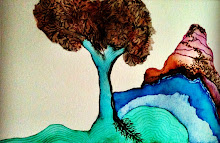Tucked Away in Shanghai, Hidden Lives
for pictures go to link
SHANGHAI — For the last couple of months I have spent the first part of each day either teaching at a Chinese university or writing.
Nearly every afternoon, though, in what has distinctly felt like the start of a new day, I have set off with camera in hand by motorcycle and subway to some of the fast-disappearing old neighborhoods of this city, to knock on the doors of hundreds of ordinary, working-class people.
These encounters with strangers have plunged me deep into a world experienced by few foreigners, and indeed, one might venture, few Chinese — particularly those of the middle class.
Through the time spent in the cramped, dimly lit homes of my subjects — people whose portraits I’ve taken for a long-term photographic project about the city’s oldest neighborhoods — I may have learned as much about Shanghai and about China as I did in five busy years as a correspondent here.
Typically, I enter their world by climbing up a rickety, twisting wooden staircase, ducking to avoid bumping my head in the near-total darkness. This experience, eerie at first, but now utterly familiar, has come to feel appropriate for a photographic adventure, like the adjustment of one’s eyes, and perspective, upon entry into a darkroom.
My subjects come fresh to the experience, so it has been unexpected and unquestionably strange for each of them, at least initially. Once they have overcome their surprise at the sight of a very tall, camera-bearing, Chinese-speaking foreigner in the sanctum of their tiny homes, the most common question has been: What could possibly be interesting about a place like this?
The answer is: plenty.
The demographics of this city, said to have the oldest population in a country that has begun to age rapidly, has come to life before my eyes. I had not expected to find so much evidence of China’s thriving quasi-underground religious culture here. In house after house, I found people worshiping privately as Christians or Buddhists. Asked how she had come to the church, a woman who had been sent to the countryside as a youth in the Cultural Revolution told me she had been converted by her neighbors. “Everyone in this building believes in Christ,” she said.
We are ever more accustomed to dazzling images of China, the fast-rising nation that may soon surpass the United States and lead the world, according to one increasingly widespread trope. Those who know a bit about the country will be aware that there are still many hundreds of millions of people in the countryside who have not yet found a spot on China’s economic escalator.
Even in China’s richest city, huge numbers of people eke out a very modest existence. To be sure, these are very often migrants from provinces like Anhui or Jiangsu, or even further afield. But more than most Chinese would suspect — particularly the proud, newly affluent generations of Shanghai people who look at my photographs and sniff “wai di ren,” or “outsiders” — a great many of the denizens of the city’s dilapidated but character-rich old quarters are natives.
Much has been written lately about growing social inequality in China. The country’s social divisions, however, are much more complicated than statistics suggest, involving lots of fine-grained, identity-based prejudices.
I think, for example, of the poor and jobless Shanghainese parents in the old garment district who told me of their eagerness to be relocated across the river to Pudong, where the environment would be better, in part they said, because there would be fewer of the “wai di” people, whom they dismissed as having “no culture.”
Others pessimistically dismissed the likelihood that China’s increasing prosperity would continue to lift all boats. “I’m frightened for my son’s future,” said a migrant from Henan. “China’s biggest problem is the population. There are just too many of us, and the competition for opportunity is murderous.”
Inevitably, the theme of relocation comes up often in encounters like these, given the frantic pace of redevelopment. Some people are pleased with the take-it-or-leave-it buyout arrangements the government has offered to pave the way for the construction of high-rises; others respond with fatalism. “If the country needs this land, what can I do?” said one elderly man.
A great many people spoke bitterly and with surprising candor, though, about what they see as a crisis of social justice. Here, I think of the 75-year-old owner of a tiny barbershop whose neighborhood came down before my eyes this summer.
“What they are doing here is simply unfair,” he said, telling me how thugs had been dispatched to beat up residents who refused to quietly make way for the demolition. “There is no rule of law. The ‘lao bai xing’ have no rights at all.” That old phrase, meaning the nameless masses, never seemed more appropriate.
Others told me the stories of corrupt local officials, whom they said offered higher compensation for relocated people who were willing to pay bribes. These anecdotes took on special potency in a summer where a nearly completed apartment building fell on its side, killing a worker and setting off lurid rumors of government corruption.
I learned that large numbers of Chinese understand and value democratic ideals and yearn for them to be applied here. “We may have gotten richer, but our politics have not really evolved since imperial times,” said one elderly man. “Chinese people want democracy as much as anyone else, and one day we will have it.”
